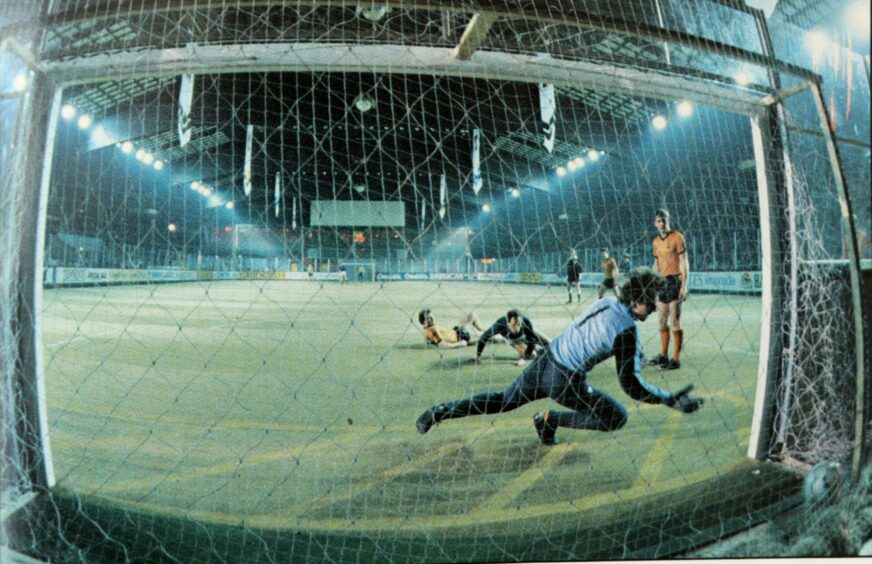
It must be the only Dundee derby in history which was reported in The Courier’s sports news in brief column.
But there again, everybody in the Scottish game was taking a step into the unknown at the launch of the Tennent’s Sixes 40 years ago in January 1984.
The competition offered both a post-Yuletide pick-me-up and a merciful relief from the hail, snow and frost outside, with the competition held indoors on a specially constructed artificial field at Coasters Arena in Falkirk.
And even if some of the more fuddy-duddy purists were sniffy about the format, there was never any chance of supporters growing bored with matches being played in two halves of seven and half minutes in the first round and two halves of 10 minutes when it reached the knockout stages.
Both Dundee clubs emerged from the group stages in that inaugural tournament and were pitted against each other in the semi-finals.
A Dodds brace couldn’t stem the tide
Jim McLean’s United were favourites in advance, given the strides they were making elsewhere, and were confident of overcoming Don Mackay’s squad.
But, in this abbreviated version of the game, with rolling substitutes, yellow cards, a sin bin and other innovations ensuring the action was fast, frenetic and (occasionally) furious, the form book often went out the window.
And so it proved, with Dundee’s pace and quickfire passes regularly ripping holes in the United rear-guard even as they recorded a 4-2 victory.
Their goals came from George McGeachie, Iain Ferguson, Lex Richardson and Albert Kidd; a very handy quartet to have at your disposal.
And though Davie Dodds bagged a brace in reply, it was the Dens Park men who advanced to a final showdown with Rangers in front of a packed crowd.
These events were organised as a bit of fun and offered a chance for families to enjoy some indoor entertainment during winter’s worst in Scotland.
But it’s still difficult to imagine anybody in Dundee colours being happy about the dramatic fashion in which the climax unravelled.
For most of the contest, they were in charge of the proceedings, but, as the Courier reported, there was a late sting in the tail.
The paper said: “Dundee, who had earlier seen off Dundee United, Celtic and Hearts, seemed set to win the trophy when they ran up a 4-2 lead with goals from Ferguson (2), [Tosh] McKinlay and Ray Stephen.
“Rangers had replied through [Ally] Dawson and [Bobby] Williamson, but they often looked unsettled by their opponents’ pace and flair.
“However, Dundee’s defence ran out of steam six minutes before the end and allowed the Ibrox side to score four times. [Davie] Cooper narrowed the gap with a penalty, [Billy] Davies scored with a diving header and Williamson added Rangers’ fifth in the closing stages.
“Dundee had a chance of salvaging the match, but Ferguson’s penalty was saved by [Andy] Bruce and Cooper darted upfield to notch his team’s sixth.”
It was a disappointing conclusion to their maiden Sixes campaign, but Dundee were undaunted. And, after the event venue was switched to the SECC in Glasgow, they atoned for that loss with a terrific display in 1988.
If any of these games finished in stalemate, even during the group phase, that was no problem. A penalty shoot-out was held and then it would be on to the next tussle in what was a near-perfect format for TV audiences.
It was also fascinating in its experimentation. Goalkeepers, for instance, could only hold on to the ball for six seconds to ensure there was no messing around and FIFA later adopted this rule for conventional football tournaments.
The organisers were also committed to stamping out dirty play and encouraging sleight of foot and trickery from the participants. Anybody caught overstepping the mark was shown a yellow card by the referee and sent to sweat in the the sin bin for two minutes.
Dundee tasted the joy of six of 1988
Most of the contests were played in a good spirit, but that wasn’t the case when Dundee and Aberdeen met in the semi-finals of the 1988 event.
The Dens Park club had already beaten the defending champions 2-1 in the group stages (as well as demolishing Morton 9-3) and there was a definite frisson when they lined up again with a place in the final up for grabs.
As The Courier said: “Aberdeen went out 4-1 in a bad-tempered match, with Dons Jim Leighton and Brian Irvine and Dundee’s Graham Harvie involved in a second-half vendetta, which whipped up the large crowd at the SECC.
“But Harvie had the last laugh, netting one of his team’s goals in what was another convincing performance from their squad.
“Shot-shy Aberdeen could only reply once through Charlie Nicholas, who had been the hero in the quarter-final thriller against English Sixes champions Nottingham Forest [who were managed by Brian Clough]
“In that match, Willie Falconer gave the Dons the lead, but Stuart Pearce struck an explosive equaliser to send the game into a penalty shoot-out.
“However, they couldn’t cope with Dundee in the next match and the Dens Parkers set up a final meeting with Motherwell.”
Jocky Scott’s men had shown their free-flowing approach during the event and, bolstered by their fans, were in no mood to change tactics in the final.
Indeed, they finished in style by taking their goal tally throughout the competition to 18, which earned them an extra £1,000 in addition to picking up the £12,000 prize on show for the victors.
Scott’s personnel had to work hard to beat the Steelmen 3-2 in the denouement, but emerged triumphant with goals from McKinlay, Harvie and Tommy Coyne, despite Well staging a late rally with Martin McBride and John Philliben finding the net to set up a tense last few seconds.
And that was it: as The Courier said in their headline the following morning: “Dundee six shooters win title”.
They had joined the roll of honour – something which eluded their Dundee rivals while the competition was in existence for 10 seasons.
The Tennent’s Sixes had captured the public’s imagination and crowds swelled in number as the 1980s rolled on.
But, gradually, squads grew weaker and clubs chose to concentrate on other priorities. Rangers and Aberdeen both forfeited their appearance money after sending depleted line-ups in 1990 and they were absent altogether, along with Dunfermline, in 1992, by which time the writing was on the wall.
And the death knell came the following year when Tennent’s confirmed it was withdrawing from the Sixes deal to focus more on its sponsorship of the Scottish Cup. Which means that Partick Thistle, who tasted rare success in the 1993 tournament, are the last club to have to their name on the trophy.
Couldn’t the format be revived?
All the same, there was nothing intrinsically wrong with the concept of the Sixes – or at least not if it had been held at a different time of year.
How better to warm up for the season – and whet the fans’ appetite for a new campaign – than by resurrecting the format after the summer break and allowing clubs to bond in an informal set-up before bigger challenges arrive?
Because, make no mistake, this was a genuinely thrilling caper when it originally launched and it made for an ideal TV spectacle.
And, if it prospered in the 1980s, then why not the 2020s?
More like this:
Ron Dixon was mercurial Dundee FC owner who decided to buy the club during poker game

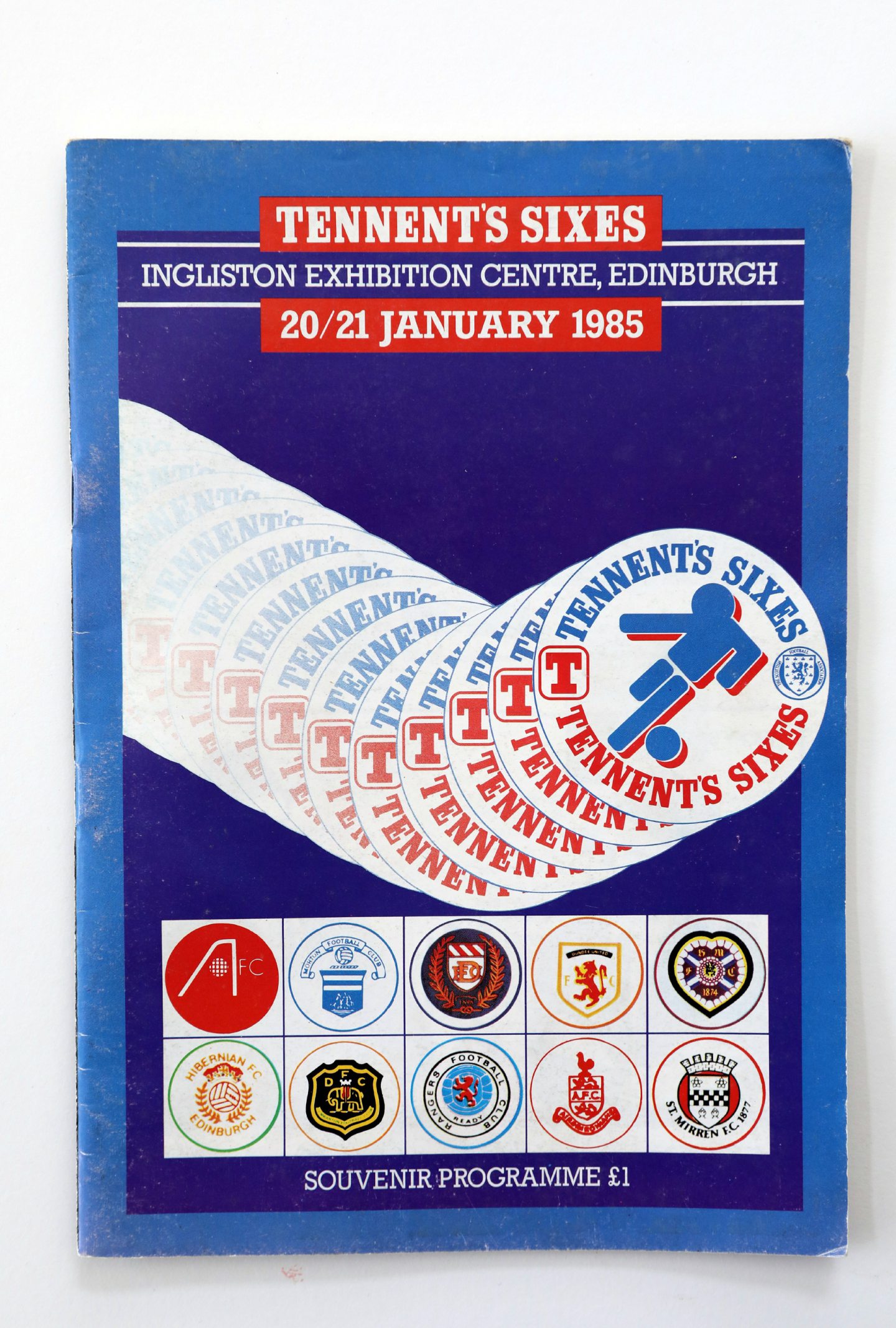
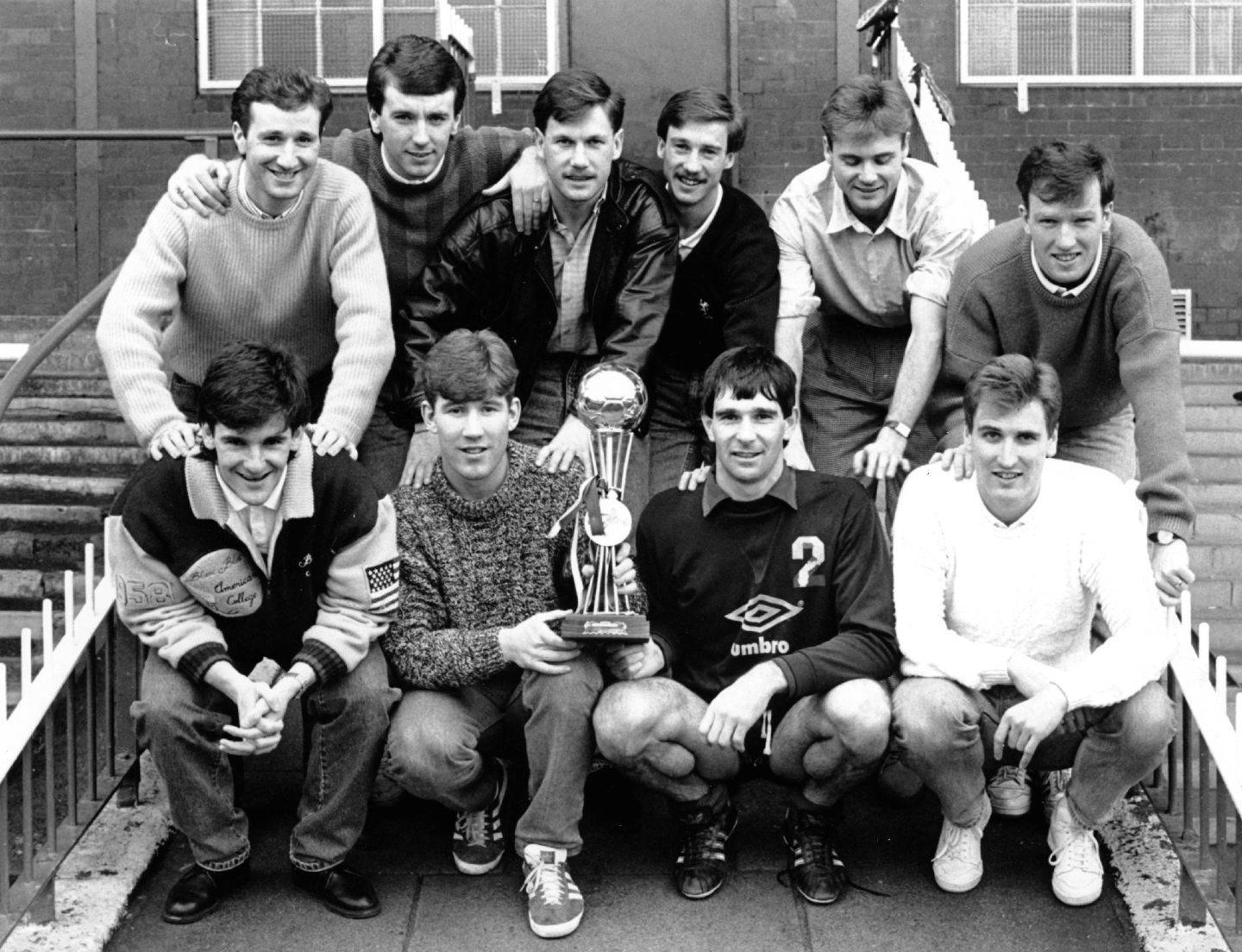
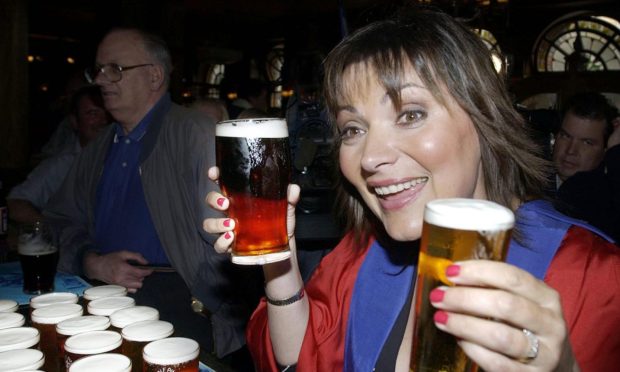

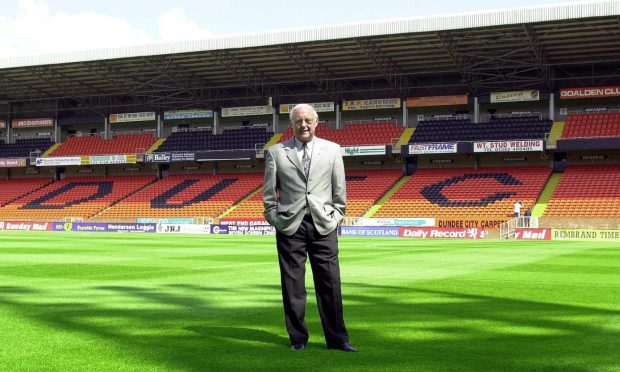
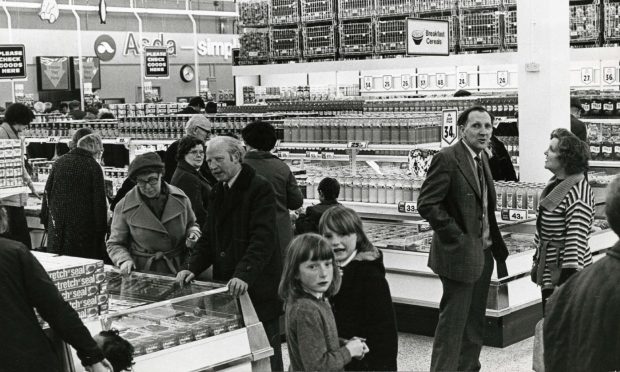
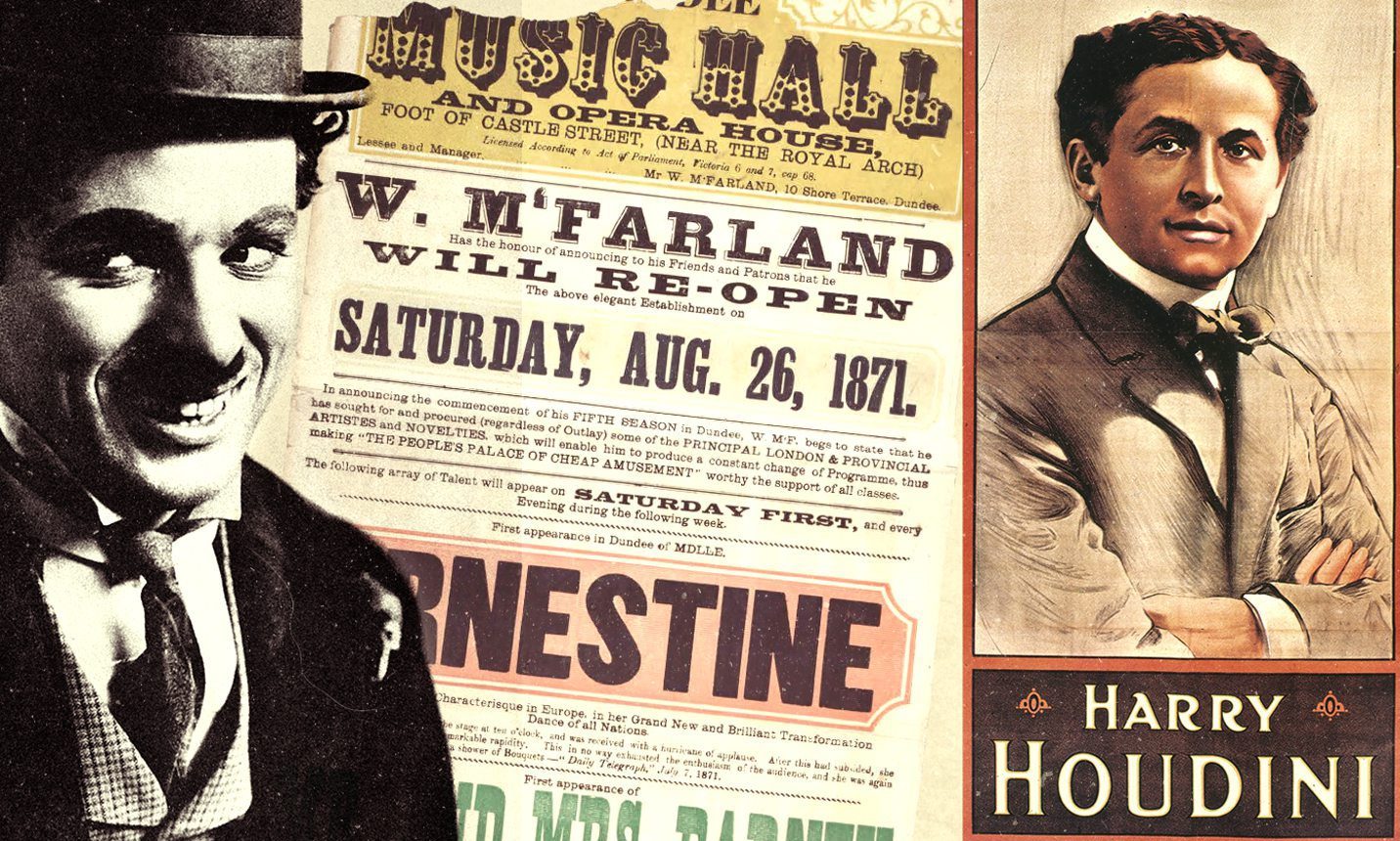
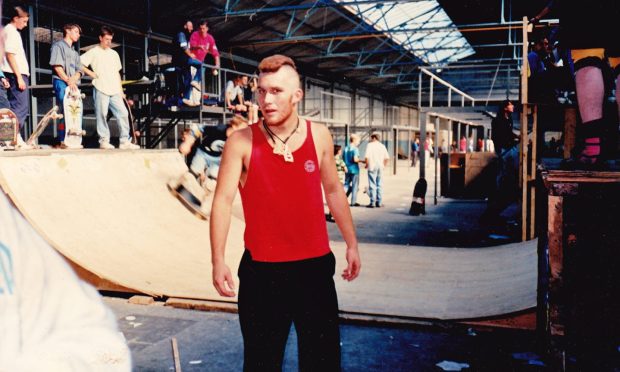
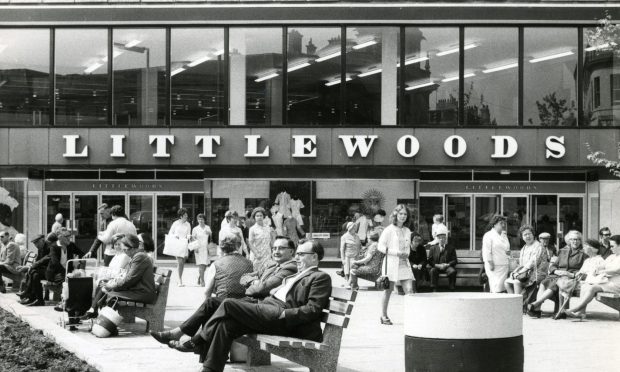
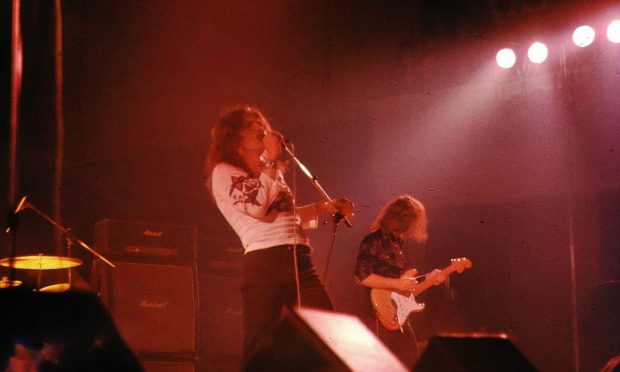
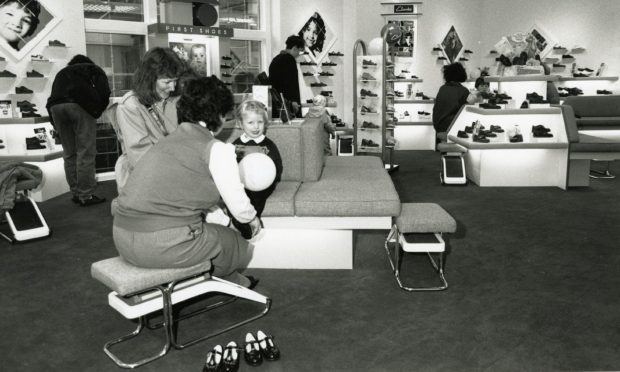
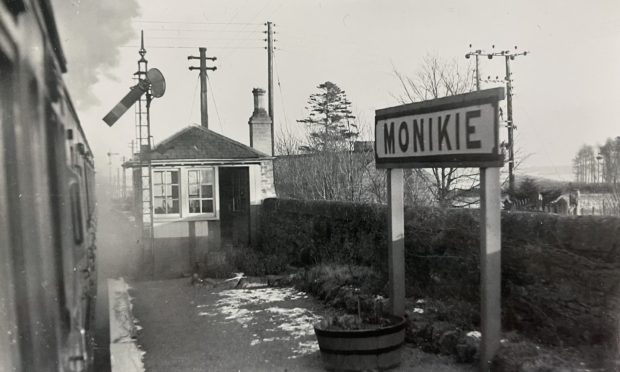
Conversation